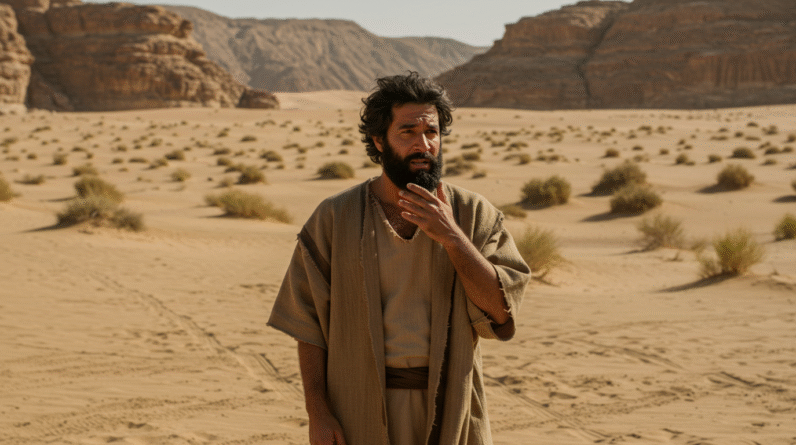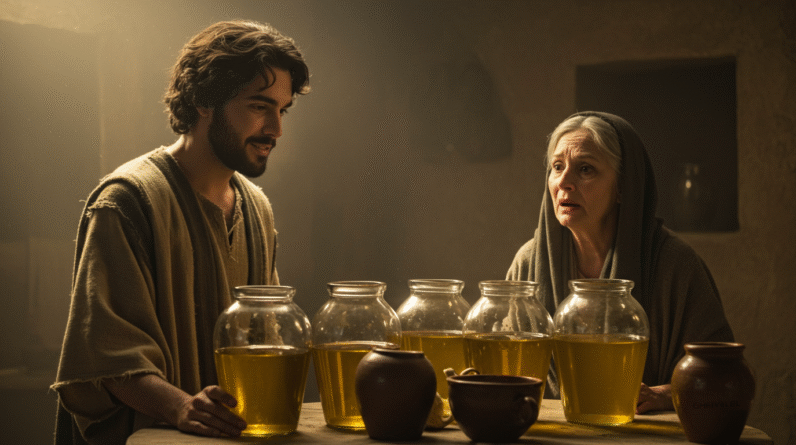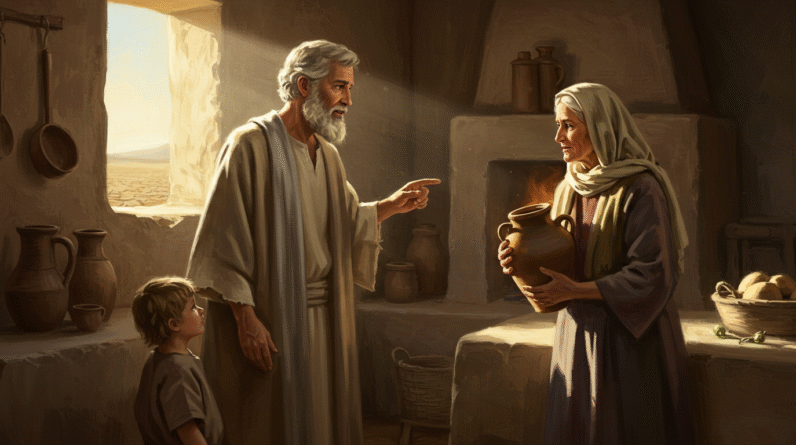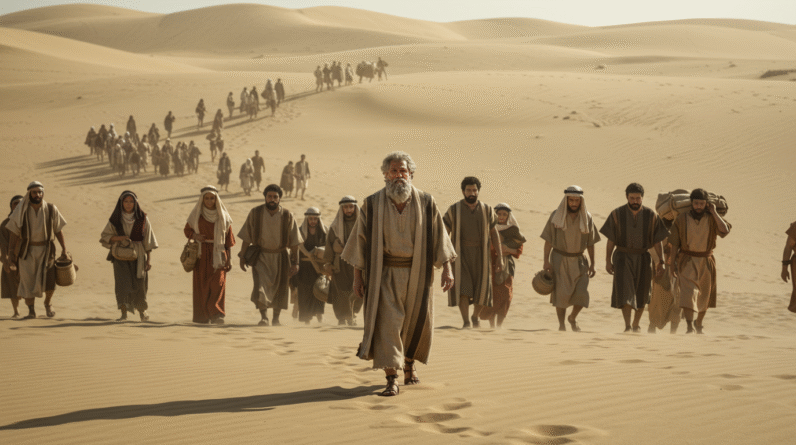Samuel Anoints Saul: Trusting God’s Choice For A King
The story of how Samuel anoints Saul is a compelling tale of divine orchestration, human hesitation, and the complexity of leadership. It is a narrative that not only speaks to the ancient Israelites but also resonates with contemporary readers who grapple with understanding the mysterious ways in which divine plans unfold. So, settle in, grab a cup of tea, and let’s dive into this fascinating moment in biblical history together.
Understanding the Backdrop: A Time of Transition
Before diving into the detailed episode where Samuel anoints Saul, it’s essential to have a clear picture of the time in which this event occurred. The Israelites were longing for a monarchical system, feeling vulnerable in the absence of a unifying leader. After centuries of reliance on judges, there was an increasing desire to have a king like other nations. It was a period marked by uncertainty, unrest, and a palpable yearning for stability. Imagine a community caught between the old ways and new aspirations—it’s a recipe for tension and anticipation.
In this context, Samuel, the last of the judges, plays a pivotal role. As a prophet, priest, and judge, Samuel’s life was dedicated to serving God and the people. He carried the responsibility of interpreting God’s will in a time fraught with change. When you think about it, isn’t it remarkable how often history finds us at crossroads similar to this?
Divine Direction: God’s Unyielding Plan
It’s crucial to understand that in the grand narrative where Samuel anoints Saul, God’s plan was paramount. Even though the people’s request for a king seemed like a rejection of divine leadership, God had a purpose that transcended human understanding. He instructed Samuel to anoint Saul, the son of Kish from the tribe of Benjamin. But why Saul? The divine selection was mysterious, embodying God’s oft-unfathomable wisdom.
There’s a lesson here: sometimes, God’s choices don’t align with human expectations. When you reflect on your own life, how often do you find yourself questioning why things happen the way they do? Trusting divine direction requires letting go of our preconceived notions and embracing faith in its purest form.
Human Hesitation: Samuel’s Reluctance
Though Samuel was chosen to anoint Saul, even he had reservations. Samuel was initially resistant because a monarchical system seemed like an abandonment of traditional faith. Can you blame him? Remember, Samuel lived his whole life serving a concept of theocratic governance, where God was the ultimate ruler.
Yet, Samuel obeyed God’s command, revealing the tension between human reluctance and divine duty. This hesitation wasn’t merely about political systems; it mirrored our struggles when faced with God’s directions that challenge our comfort zones. It’s a situation we’ve all been in—standing at the precipice of change, unwilling yet destined to move forward. How often do we falter before embracing our paths, only to realize their purpose in hindsight?
The Journey to Saul: An Unexpected Encounter
Let’s talk about the curious way in which Samuel anoints Saul. The narrative doesn’t commence with grand declarations or fiery angels. Instead, it starts with donkey searches. Saul was on a seemingly mundane quest: finding his father’s lost donkeys. Divine missions often begin with the ordinary, don’t they?
Guided by his servant’s suggestion, Saul eventually consults Samuel. Isn’t it fascinating how life’s detours lead us to pivotal encounters? When Saul approached Samuel, neither was aware of the monumental step they were about to take. It’s like life preparing a theatrical surprise—only understood fully when the curtains draw open.
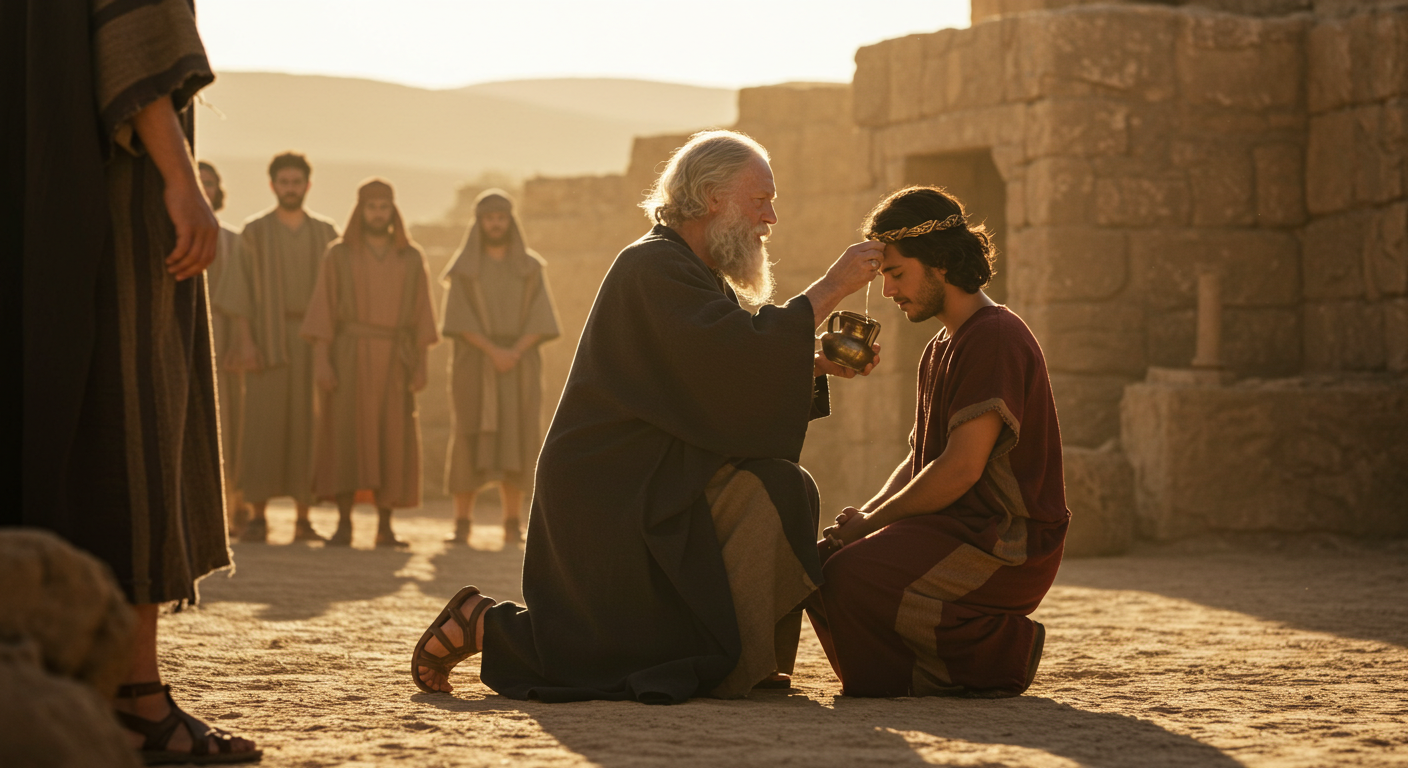
Samuel Anoints Saul: The Moment of Choosing
And so, the moment arrives where Samuel anoints Saul 1 Samuel 10:1. With a flask of olive oil, Samuel pours it on Saul’s head, a gesture laden with significance. Anointing with oil symbolized consecration, a setting apart for sacred purposes. In that act, Saul transforms from a young man on a routine task to the chosen king of Israel.
Observe how God uses the simple gestures of life to effect profound changes. When Samuel anoints Saul, there is a transfer of divine authority, a divine imprint upon an ordinary life. We, too, are often anointed in small ways—through gestures, opportunities, moments that open unexpected doors.
The Confirmation: Signs and Wonders
As a tangible confirmation that it was indeed God who orchestrated these events, Samuel provided Saul with a series of signs that occurred exactly as predicted 1 Samuel 10:2-9. He would meet two men who would inform him that the donkeys had been found. Following this, he would meet three men going up to worship at Bethel, and they would offer him food. Finally, he would encounter a procession of prophets, joining them as the Spirit of the Lord came powerfully upon him, transforming him.
There’s something mystical about these events, isn’t there? They underscore the theme that when God calls us, He provides the confirmation and the empowerment necessary to fulfill that calling. How often do you look for signs, for spiritual winks from the universe, to reassure you that you’re on the right path?
Public Affirmation: Saul as King
After Samuel anoints Saul, there’s a need for public acknowledgment 1 Samuel 10:17-25. The tribes gather, and lots are cast to select Saul as king before all. Interestingly, Saul hides among the supplies, displaying his initial reluctance. It’s a moment where the public and private converge—the man who was hesitant is now publicly affirmed.
This duality of identity—the private reluctance and public acceptance—speaks volumes about the nature of leadership. Many of us experience this: presenting one face to the world while wrestling with a different one internally. Yet, it’s in these moments of vulnerability that true leadership can emerge.
Challenges Ahead: Saul’s Reign Begins
As Samuel anoints Saul, a new chapter begins for Israel. However, the path was not without its challenges. Saul’s reign was characterized by victories and failures, divinely ordained tests that revealed his character. The initial obedience gave way to actions that demonstrated a departure from following God’s commands strictly.
Isn’t this the pattern of life? We start with pure intentions, but the challenges of leadership, pressures, and our human frailties test our resolve. Reflect on a time when you faced your challenges, and how they shaped your journey, either towards growth or missteps.
Samuel’s Continued Influence
Even after Samuel anoints Saul, the prophet remains a guiding force. He offers wisdom, reprimands, and guidance, symbolizing the enduring presence of divine counsel. His influence showcases the importance of mentorship and continual divine guidance in the life of a leader.
Mentorship and guidance are invaluable. They offer perspectives we might miss and challenge us to rise above our shortcomings. Who are the Samuels in your life? The mentors who guide you, believing in your potential even when you falter?
Reflecting on Modern Leadership
The narrative where Samuel anoints Saul offers timeless insights for today’s world. It invites reflection on how we perceive leadership and divine direction. At a glance, the story is ancient, but at its heart, it addresses enduring questions: What does it mean to be chosen by God? How do we respond when human desires seem to diverge from divine wisdom?
In a world rife with leadership challenges, the story pleads for leaders who are responsive to divine direction and humble enough to recognize their need for counsel and correction. As you navigate your own leadership roles, whether at work, home, or community, consider how you integrate these lessons into your life.
Wrapping Up: Trusting the Process
To conclude, the episode where Samuel anoints Saul isn’t just an ancient story with historical import. It’s a reflection of the complex dance of human aspiration and divine choice. It’s about trusting the process, even when it seems beyond understanding. It’s about faith, obedience, and the journey between human hesitation and divine assurance.
The next time you find yourself at a crossroads, remember Samuel and Saul. Consider how the ordinary can lead to the extraordinary, and how every step, guided by faith, leads you closer to fulfilling your own divine purpose.
Explore More
For further reading and encouragement, check out these posts:
👉 7 Bible Verses About Faith in Hard Times
👉 Job’s Faith: What We Can Learn From His Trials
👉 How To Trust God When Everything Falls Apart
👉 Why God Allows Suffering – A Biblical Perspective
👉 Faith Over Fear: How To Stand Strong In Uncertain Seasons
👉 How To Encourage Someone Struggling With Their Faith
👉 5 Prayers for Strength When You’re Feeling Weak

📘 Jesus and the Woman Caught in Adultery – Grace and Mercy Over Judgement
A powerful retelling of John 8:1-11. This book brings to life the depth of forgiveness, mercy, and God’s unwavering love.
👉 Check it now on Amazon
As a ClickBank Affiliate, I earn from qualifying purchases.
Acknowledgment: All Bible verses referenced in this article were accessed via Bible Gateway (or Bible Hub).
“Want to explore more? Check out our latest post on Why Jesus? and discover the life-changing truth of the Gospel!”





